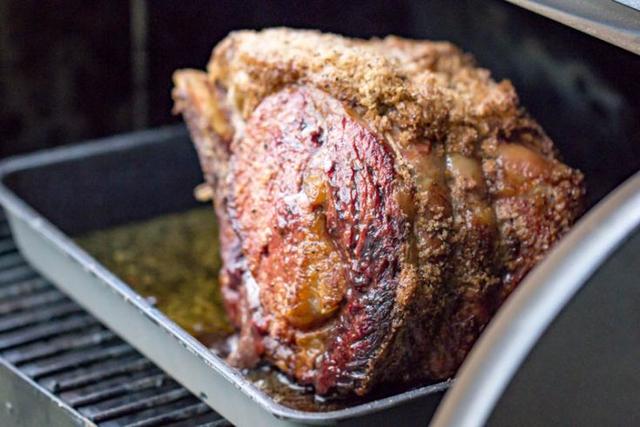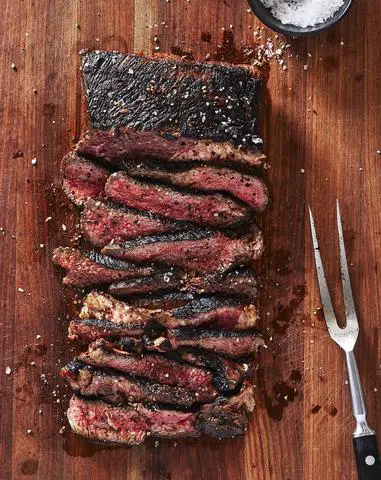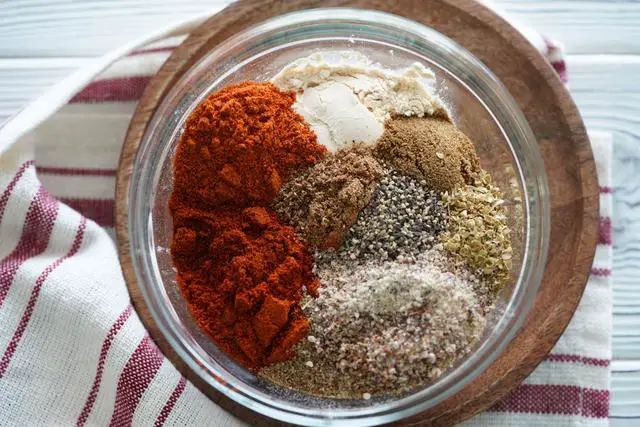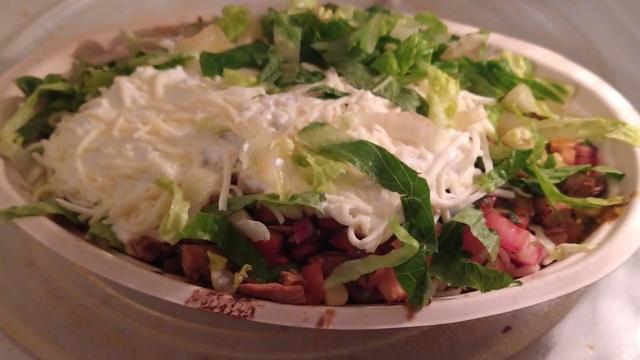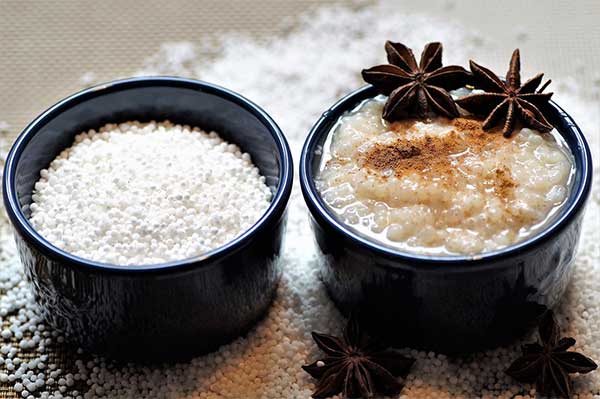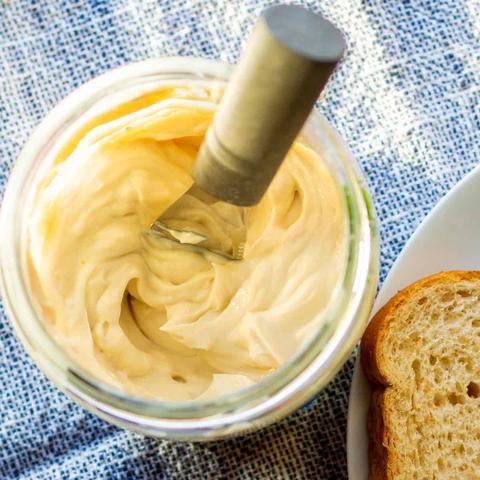
“Revolutionize Your Recipes: Mayo as the Ultimate Egg Substitute! Discover a game-changing culinary secret that will transform your dishes. Learn how to harness the incredible versatility of mayo in place of eggs, unlocking endless possibilities for both sweet and savory creations. Elevate your cooking skills with this innovative substitute that guarantees exceptional taste and texture. Unleash your creativity in the kitchen and surprise your guests with extraordinary dishes using mayo as an egg replacement.”
Can You Substitute Mayonnaise For Egg?
Yes, you can substitute mayonnaise for eggs in some recipes. Mayonnaise is made from emulsified egg yolks, oil, and sometimes vinegar or another acid like lemon juice. When using mayonnaise as a substitute for eggs, use three spoonfuls of mayo for each egg. Mayonnaise can act as a leavening agent and binder in baked goods, providing structure to the dough or batter. It also adds fats and moisture to the recipe.
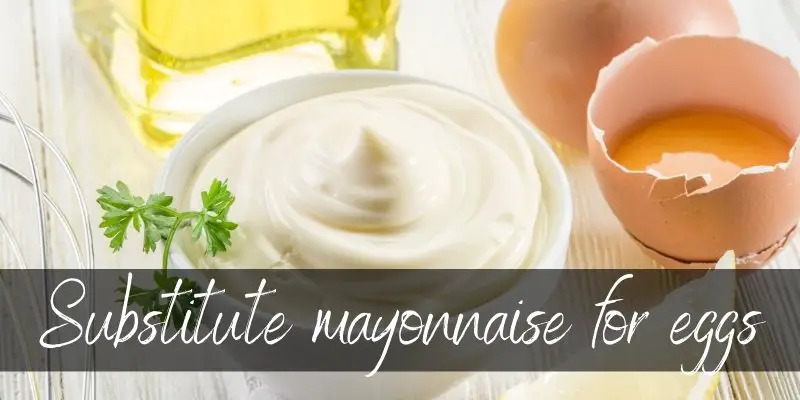
However, it is important to keep the proportions correct when substituting mayonnaise for eggs. Since mayonnaise is already high in oil content, you should adjust the amount of other oils or butter that you’re adding in the recipe. Adding too much oil can make the final product greasy or too dense. Additionally, mayonnaise has a higher calorie and fat content compared to eggs, so if you’re aiming for a healthier bake, it might not be the best substitute.
Substituting Mayonnaise For Eggs
If you find yourself in a baking bind without any eggs, mayonnaise can be a suitable substitute. The key is to maintain the correct proportions in your recipe. For each egg needed, use three spoonfuls of mayonnaise. However, it’s important to note that mayonnaise is primarily made from oil, with only a small amount of egg whites. Therefore, adjustments should be made to the other components of the recipe to accommodate the additional fat from the mayo.
Mayonnaise can serve as a replacement for both eggs and butter in baking. Just like eggs, mayonnaise acts as a leavening agent and provides moisture, fats, flavor, and texture to baked goods. While it may not have as much protein as eggs, it can still contribute some fats and moisture to your dish. It’s worth considering that mayonnaise is higher in calories and saturated fats compared to eggs, so if you’re looking for a healthier alternative or have specific dietary restrictions, other substitutes like mashed avocados might be more suitable.
Oil Content
Mayonnaise is made up of about 80% oil, and low-fat varieties contain around 50% oil. This high oil content makes mayo more of an oil product than an egg one. When substituting mayonnaise for eggs in a recipe, it is important to consider this oil content and adjust the other components of the bake accordingly. For instance, if a cake recipe calls for oil or butter, you should use less of it since the mayonnaise already adds more fat. Failing to adjust the amount of oil or butter in the recipe could result in a greasy or dense cake.
While mayonnaise can be used as a substitute for eggs in baking, it is important to note that it has different nutritional properties. Mayonnaise is higher in saturated fats, calories, and sodium compared to eggs. It contains about 10g of fat and approximately 94 calories per tablespoon. Therefore, using mayonnaise instead of eggs will change the nutritional makeup of your dish. Additionally, mayonnaise has significantly less protein than eggs, meaning it won’t provide the same level of satiety. If you are trying to make a healthier bake or prioritize protein intake, mayonnaise might not be the best substitute for you.
Miracle Whip is often seen as an imitation of mayonnaise but is legally marketed as a salad dressing due to its different composition and manufacturing process. While Miracle Whip does contain eggs, oil, and salt like mayonnaise, it also includes mustard flour and dried garlic which give it a slightly different flavor profile. Substituting Miracle Whip for eggs in recipes can be done but should be approached with caution due to its higher oil content and unique taste. Adjusting the amount of other fats in the recipe is necessary to avoid a dense or overly oily final product.
Egg Content
Eggs in a recipe, especially a baked one, are meant to add structure to the dough or batter. They’re also used as a binder, something nice and sticky that will keep everything together. Mayo is made from emulsified egg yolks, oil, and sometimes vinegar or another acid like lemon juice. It’s usually pale white or a creamy yellow color, and different brands may be sweeter or more savory than others.
When using mayonnaise as a substitute for eggs, use three spoonfuls of mayo for each egg. These can be your average sized spoons, but try not to make them too heaping. If you want a more exact measurement, a loose tablespoon will do the job. While most people know mayonnaise is made of egg yolks, it is actually more than that. The recipe for regular mayo is about 80% oil, and 50% in low fat varieties. Because of this high oil content, when substituting mayonnaise for eggs in baking recipes, it’s important to adjust the other components of the recipe accordingly to avoid greasiness or dense texture.
Miracle Whip is not legally defined as mayonnaise but is often seen as an imitation of it. It has a slightly different composition than mayonnaise with additional ingredients like mustard flour and dried garlic which gives it a more rustic and savory taste compared to traditional mayo. While you can use Miracle Whip as an egg substitute in recipes, be cautious about its higher oil content and adjust other fats accordingly.
Nutrition Content
Mayonnaise is a calorically dense ingredient, containing about 10g of fat and 94 calories per tablespoon. It is also higher in saturated fats and sodium compared to eggs. Therefore, substituting mayonnaise for eggs will change the nutritional makeup of your dish. If you’re aiming for a healthier bake, mayonnaise might not be the best substitute due to its higher calorie and fat content. Additionally, mayonnaise lacks the same protein content as eggs, which means it won’t keep you full for as long.
Miracle Whip is not legally defined as mayonnaise but is often seen as an imitation of it. While it contains eggs, oil, and salt like mayonnaise, it also includes mustard flour and dried garlic, giving it a slightly different taste profile. This could negatively impact delicately flavored dishes like chiffon cakes. If you choose to substitute Miracle Whip for eggs in a recipe, be cautious as it has a higher oil content. Adjusting the amount of other fats used in the recipe is recommended to avoid ending up with a dense final product.
Can You Use Miracle Whip As A Substitute For Egg?

Miracle Whip, although similar to mayonnaise, has a different composition and flavor profile. While it does contain eggs, oil, and salt like mayonnaise, it also includes mustard flour and dried garlic, which give it a more rustic and savory taste. Due to these differences, using Miracle Whip as a substitute for eggs in a recipe may not be ideal, especially for delicately flavored dishes such as chiffon cakes. However, if you still choose to use Miracle Whip as an egg substitute, it is important to adjust the amount of other fats in the recipe to compensate for its higher oil content.
Conclusion
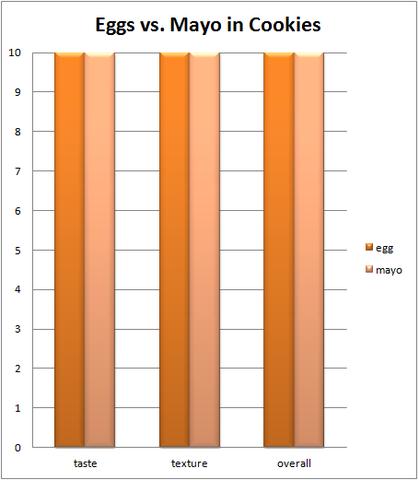
In conclusion, mayonnaise can be used as a substitute for eggs in certain baking recipes. By using three spoonfuls of mayo for each egg needed, you can maintain the structure and binding properties that eggs provide. However, it is important to adjust the other components of the recipe, such as oil or butter, to account for the additional fat in mayonnaise. While mayonnaise can be a convenient alternative when you’re out of eggs, it is higher in saturated fats and calories, so it may not be suitable for those looking for a healthier option. Additionally, Miracle Whip, although similar to mayonnaise, has a different composition and flavor profile which may not work well in all recipes.
Overall, substituting mayonnaise for eggs can work well in many baked goods, providing moisture and some of the fats found in egg yolks. However, it’s important to consider the nutritional impact and adjust other ingredients accordingly. If you’re looking for other options, mashed avocados or other egg substitutes that provide fat, protein, and moisture could be worth exploring. Ultimately, experimentation and adaptation are key when using substitutes in baking recipes.
In summary, mayo can be a versatile and effective egg substitute in various recipes. With its creamy texture and binding properties, it can mimic the role of eggs in baking and cooking. Mayo provides a suitable option for those with dietary restrictions or allergies, ensuring delicious results without compromising on taste or texture.
Learn More About Grilling
If you want to learn more about grilling, check out these other helpful resources!

